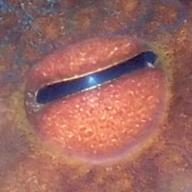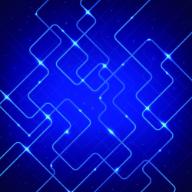In 2009 analog signals were turned off in favor of digital. The problem is that DTV signals are binary. Either you get a perfect signal or you get no signal. Analog signals are multipath. The picture might be snowy, but at least you get a signal.
In 2009, they gave out coupons for converter boxes, but those boxes don't convert the signal to analog. That just allow you to watch digital signals on an analog TV.
Is there a way to convert the digital signals back to analog once they reach you?
Can DTV signals be converted back to analog?
2019-04-15 3:26 am
回答 (7)
2019-04-16 12:49 am
"Is there a way to convert the digital signals back to analog once they reach you?"
YES!! The mysterious device you want is called a "new TV". Feed it a digital TV signal and it will magically turn that into the analog signal you see on your screen. I own one and I love it.
YES!! The mysterious device you want is called a "new TV". Feed it a digital TV signal and it will magically turn that into the analog signal you see on your screen. I own one and I love it.
2019-04-15 3:57 am
Not "back to", just "to".
A DTV converter (tuner) receives digital signals,
demodulates them, and converts them to analog.
You and others like you are wishing for something that Will Never Happen.
All questions on this subject are a waste of time.
A DTV converter (tuner) receives digital signals,
demodulates them, and converts them to analog.
You and others like you are wishing for something that Will Never Happen.
All questions on this subject are a waste of time.
2019-04-15 3:34 am
"don't convert the signal to analog" wrong, they did convert to analog, how else could you watch the picture on an analog TV?
Multipath distortion did not cause snow, it causes multiple dim images. Digital signals are not prone to multipath distortion.
Multipath distortion did not cause snow, it causes multiple dim images. Digital signals are not prone to multipath distortion.
2019-04-16 6:14 am
Some digital TV receivers still have RF antenna output sockets which do as you ask.
The low image quality looks atrocious on any modern flat panel TV, partially because they have the resolution to show all the image faults, but mostly because they are also much larger screens than the old analogue CRT-based TVs.
But if you have a poor digital reception quality then you'll also have even worse RF output quality: the box cannot add back details it never received to begin with.
The low image quality looks atrocious on any modern flat panel TV, partially because they have the resolution to show all the image faults, but mostly because they are also much larger screens than the old analogue CRT-based TVs.
But if you have a poor digital reception quality then you'll also have even worse RF output quality: the box cannot add back details it never received to begin with.
2019-04-29 1:22 am
Digital TV starts to pixilate when the signal is week or has interference, but that happens well below the level of a watchable analog signal. As others point out, converter boxes DO convert digital TV to an analog signal, although much is discarded to fit in the limits of analog TV. And most DTV never was analog unless you count the light entering the digital camera.
Again, as others point out, DTVs the size of your CRT (analog TV) are real cheap. There is no longer any point trying to convert/ down-sample DTV or use on an analog TV.
Other analog technology is also a waste of time, video tape being replaced by DVR and/or your computer using a USB tuner, and terabyte hard drives. I have converted all my 8mm home videos to files, which are only a small part of my home video collection. And that collection is backed up on internal and external hard drives.
Again, as others point out, DTVs the size of your CRT (analog TV) are real cheap. There is no longer any point trying to convert/ down-sample DTV or use on an analog TV.
Other analog technology is also a waste of time, video tape being replaced by DVR and/or your computer using a USB tuner, and terabyte hard drives. I have converted all my 8mm home videos to files, which are only a small part of my home video collection. And that collection is backed up on internal and external hard drives.
2019-04-15 2:58 pm
ANYTHING you get that receives the digital TV signal will have the same sharp cut-off and degradation as the signal weakens, no matter what happens after the receiver stage - built in to a TV or converter to some other format.
However, different makes and models of converter box can have different receiver sensitivities.
The first one I got only picked up about six channels; I got a different make and it picked up 40 channels...
To be blunt, to any TV or radio engineer, indoor antennas / "rabbit ears" are a joke. The only time they can be considered practical is if you can literally see the TV transmitter you are picking up. I honestly do not know why places are still allowed to promote & sell them as usable..
Radio signals (which is still what TV is) do not go through walls very well, especially if they are damp.
There is no substitute for a proper outdoor antennal.
However, different makes and models of converter box can have different receiver sensitivities.
The first one I got only picked up about six channels; I got a different make and it picked up 40 channels...
To be blunt, to any TV or radio engineer, indoor antennas / "rabbit ears" are a joke. The only time they can be considered practical is if you can literally see the TV transmitter you are picking up. I honestly do not know why places are still allowed to promote & sell them as usable..
Radio signals (which is still what TV is) do not go through walls very well, especially if they are damp.
There is no substitute for a proper outdoor antennal.
2019-05-08 5:28 am
The whole point of the converter boxes is to tune and convert ATSC digital to the NTSC format.
The modulator usually has a 2 channel output, 3 or 4, That is what pipes to analog TVs.
Usually equipped with analog video as well as digital out.
The old NTSC format used vestigial sideband for transmission and was susceptible to noise, signal fade, weak signal noise, and ghosting(multipath distortions)
Digital improves on that in that weak signal or severe multipath distortion, causes excessive missed or uncorrectable packets and the video decoder just goes blank, it works good, or not at all.
The 'blockies' is a marginal signal where display segments are droppeed but still decodes packets.
>>So you know, every level of today's ATSC broadcast is digital from camera/audio to your display monitor. The studio, the link to the transmitter, the transmitter to your home.
Even before the switch, much was digital up to the transmitter.
The modulator usually has a 2 channel output, 3 or 4, That is what pipes to analog TVs.
Usually equipped with analog video as well as digital out.
The old NTSC format used vestigial sideband for transmission and was susceptible to noise, signal fade, weak signal noise, and ghosting(multipath distortions)
Digital improves on that in that weak signal or severe multipath distortion, causes excessive missed or uncorrectable packets and the video decoder just goes blank, it works good, or not at all.
The 'blockies' is a marginal signal where display segments are droppeed but still decodes packets.
>>So you know, every level of today's ATSC broadcast is digital from camera/audio to your display monitor. The studio, the link to the transmitter, the transmitter to your home.
Even before the switch, much was digital up to the transmitter.
參考: Former engineer.
收錄日期: 2021-04-24 07:48:04
原文連結 [永久失效]:
https://hk.answers.yahoo.com/question/index?qid=20190414192604AANgKGj




